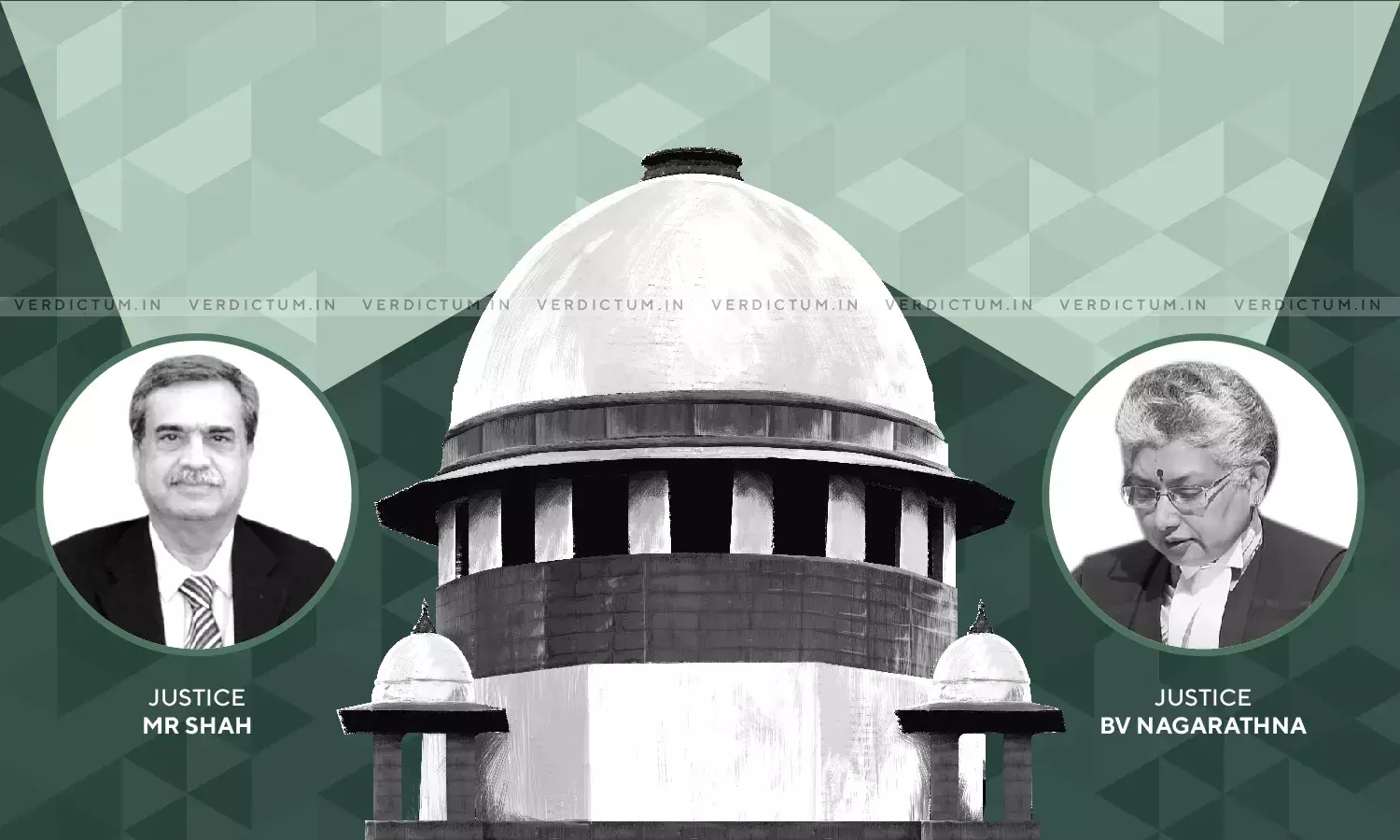No Order Can Be Passed For Creating Supernumerary Posts For Temporary Appointments under Article 226 - Supreme Court

A two-judge Bench of Justice MR Shah and Justice B.V. Nagarathna while setting aside the judgment of the Division Bench of the Gujarat High Court has held that no order for creation for supernumerary posts can be passed for regularization of temporary employees under Article 226 of the Constitution.
In this context, the Bench observed -
"The High Court has observed that even while absorbing and/or regularising the services of the respondents, the State Government may create supernumerary posts. Such a direction to create supernumerary posts is unsustainable. Such a direction is wholly without jurisdiction. No such direction can be issued by the High Court for absorption/regularisation of the employees who were appointed in a temporary unit which was created for a particular project and that too, by creating supernumerary posts."
In this case, the respondents were appointed on contractual basis for a period of eleven months on a fixed salary and on a particular project, namely, "Post-Earthquake Redevelopment Programme" of the Government of Gujarat. On closure of the project, State Government took a decision to place them in the services of Indian Red Cross Society. Instead of joining the duties they filed a writ petition in the Gujarat High Court for regularisation of their services and absorption in Government service and also challenged their placement with the IRCS. The petition was rejected aggrieved by which they filed Letters Patent Appeal (LPA) before the Division Bench of the High Court.
The appeal was preferred by the State before the Supreme Court against the impugned judgment passed by the Division bench of the Gujarat High Court by which it allowed an LPA and directed the State to consider the cases of the respondents for regularisation sympathetically and if necessary, by creating supernumerary posts.
Ms. Deepanwita Priyanka, Counsel appeared on behalf of the State whereas respondents were represented by Shri Kabir Hathi, Counsel. Counsel for respondents argued that as the respondents were working as drivers with the State Government for seventeen years, they may be absorbed with the State Government and their services may be regularised.
The Supreme Court held that the unit in which the respondents were appointed was a temporary unit and not a regular establishment.
"The posts on which the respondents were appointed and working were not the sanctioned posts in any regular establishment of the Government. Therefore, when the respondents were appointed on a fixed term and on a fixed salary in a temporary unit which was created for a particular project, no such direction could have been issued by the Division Bench of the High Court to absorb them in Government service and to regularise their services," the Court held.
The Court also observed that High Court only considered the fact that the Respondents had worked for seventeen years i.e., for a long time, however, the Court did not consider that out of the seventeen years, the Respondents actually continued for ten years in service.
The Bench additionally noted that State instead of putting an end to the services of the Respondent graciously placed them in the Indian Red Cross Society. In this context, the Coirt held -
"No duty was cast upon the State to transfer them to another establishment in a case where it is found that the employees are appointed in a temporary unit and on a temporary contractual basis and on a fixed term salary and on closure of the temporary unit, their services are not required. However, the State Government was gracious enough to place the respondents in the Indian Red Cross Society, which the respondents did not accept."
The Court also held that the impugned order of the High Court to create supernumerary posts for regularization of temporary employees cannot be treated as a precedent in other cases.
The Bench further opined, "No such order of absorption and/or regularisation even if required for creating supernumerary posts and not to treat the same as precedent could have been passed by the High Court in exercise of powers under Article 226 of= the Constitution of India."
Accordingly, the Court allowed the appeal and set aside and quashed the impugned judgment of the High Court and restored the order of the Trial Court.
Click here to read/download the Judgment

